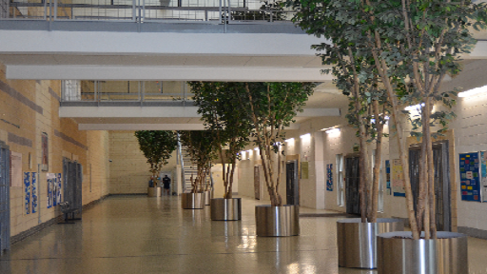ESC Conference in Cardiff

Preliminary findings: The research team present papers at this week’s ESC conference in Cardiff
For almost a year, we have been busy doing fieldwork in prisons all over England & Wales and Norway. This week, however, we grant ourselves a pause from fieldwork, and head to the ESC conference in Cardiff to present preliminary findings from our research so far.
On Friday 14-15.15, Ben Crewe chairs a panel where he is also presenting a paper based on the ‘Deep end’ sub-study, with the title: ‘Depth, extremity and intensity at the terminus of the prison system’. On Saturday morning, from 09-10.15, Alice Ievins presents the paper ‘Orientations towards women among male prisoners convicted of sex offences’, which is based on ongoing research in our sub-study on sex offender imprisonment.
Also on Saturday morning, from 09-10.15, we present two papers based on our Entry/Exit sub-study. To give you a taste of what we are finding in this sub-study, we use this blog post to present the two papers in some detail.
The first paper deals with the pains of entering custody in prisons in England & Wales and Norway. Studying the ‘pains of imprisonment’ has been a key concern of prison sociology ever since Sykes’ (1958) classic study. However, rarely have the pains of entering prison been studied, and even more rarely through a comparative framework. The lack of interest in the processes of entering prisons is surprising given the significance of this status transition in the works of Goffman (1963) and others. The paper seeks to fill this gap in the literature by exploring and comparing the experiences of entering custody in England & Wales and Norway. A benefit of this research design is that it enables a study of how different penal contexts shape ‘the pains of entry’. The paper draws on data from the Entry/Exit sub-study, and consists of qualitative interviews with prisoners (N=162) and observation from five different prisons. A key finding is that we find a more individualised process of entry in Norway and a more mechanised form of entry in England & Wales. The paper then describes how these differences affects prisoners’ experiences of and adaptations to life in prison. In the discussion, we argue that the differences we find may partly be explained by reference to the stark contrast in the volume of prison entries in the two jurisdictions, and by a stronger commitment to the principle of normalization in Norwegian penal practice. In conclusion, we propose that the comparative study of ‘the pains of entry’ highlight important differences between ‘inclusionary’ and ‘exclusionary’ penal regimes that have not yet been accounted for in the debate on the ‘exceptional’ character of Nordic imprisonment.
The second paper offers a study of a peculiar phenomenon, namely the Norwegian ‘imprisonment queue’. Based on ethnographic data from the Entry/Exit sub-study, this paper explores the implications of this ‘imprisonment queue’ in Norway. Although a common experience for sentenced Norwegians to wait for months/years before they can serve their prison sentence, this phenomenon has not received any academic attention. Following Sykes (1958), we argue that the ‘imprisonment queue’ could be coined as a peculiar Nordic 'pain of imprisonment'. Drawing upon anthropological theory of rituals developed by Van Gennep (1909) and Turner (1967) the analysis shows that these not-yet prisoners, but certainly not free citizens, live in a sort of liminal position, ‘betwixt and between’ freedom and imprisonment. Furthermore, we draw upon and expand earlier research of the ‘breadth’ of imprisonment (the informal consequences of imprisonment, stigma, ‘disabilities’, etc., see Crewe 2015) by arguing that breadth does not only reach beyond the sentence, but has consequences and is felt before any time is served. The paper will argue that while the ‘imprisonment queue’ provides certain benefits such as being able to prepare or negotiate the terms of one’s imprisonment, it also entails insecurity and an existential limbo for the prisoners waiting to serve their sentence.
For those of you going to Cardiff this week, we hope to see you at our various panels! And for those of you who are not going: we will continue to work on our papers and let you know when they are published and can be enjoyed in full detail.
